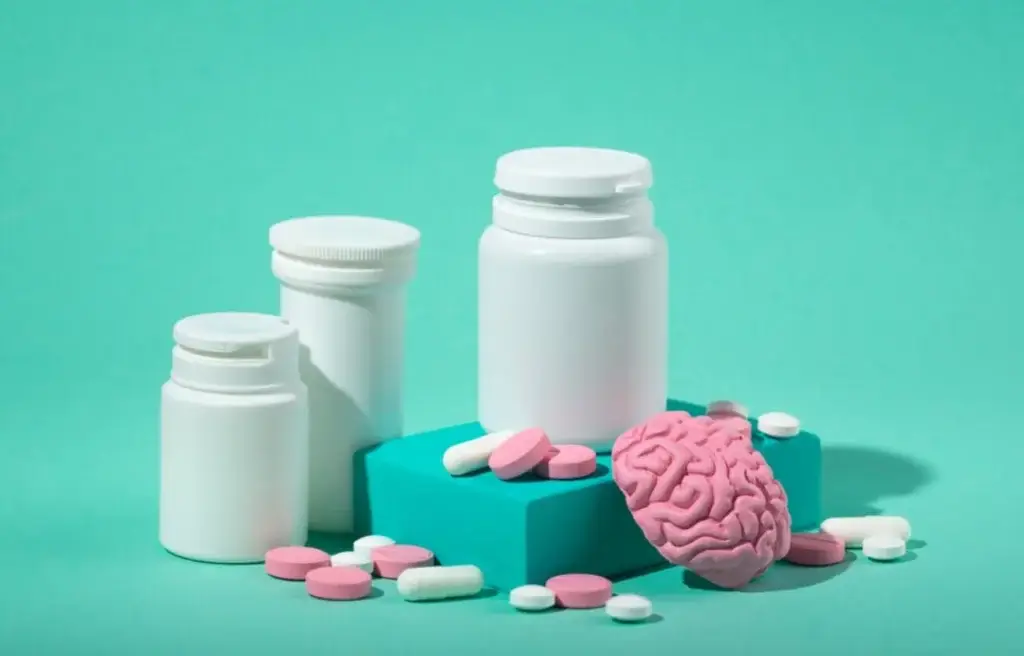Now Reading: RFK Jr.’s MAHA Commission: ADHD Meds – Scrutiny or Advocacy?
- 01
RFK Jr.’s MAHA Commission: ADHD Meds – Scrutiny or Advocacy?

RFK Jr.’s MAHA Commission: ADHD Meds – Scrutiny or Advocacy?
In a significant policy development, Robert F. Kennedy Jr. (RFK Jr.), recently appointed to lead the “Make America Healthy Again” (MAHA) Commission by President Donald Trump, has placed ADHD meds under intense scrutiny.
This examination of commonly prescribed stimulants has sparked a national conversation about the diagnosis and treatment of Attention-Deficit/Hyperactivity Disorder (ADHD) in the United States. With approximately 6.1 million American children and countless adults diagnosed with ADHD, this review could potentially impact treatment protocols for millions of Americans. This article explores the background of this development, the concerns being raised, and what this might mean for patients, healthcare providers, and the pharmaceutical industry.
The Formation of Make America Healthy Again (MAHA)
President Donald Trump announced the creation of the Make America Healthy Again (MAHA) Commission in early 2025, appointing longtime health advocate and environmental attorney Robert F. Kennedy Jr. to spearhead this initiative. The commission was established with the stated goal of evaluating various health policies, medical treatments, and pharmaceutical products currently in use across the United States.
RFK Jr., known for his outspoken positions on various health-related issues, has consistently advocated for more stringent evaluation of medications, particularly those prescribed to children. His appointment signals the administration’s interest in potentially reshaping aspects of American healthcare policy, with a particular focus on pharmaceutical interventions for behavioral and mental health conditions.
Why ADHD Medications Are Under Review
The MAHA Commission has identified several concerns regarding ADHD medications that have prompted this comprehensive review:
Rising Prescription Rates
One of the primary concerns cited by RFK Jr. is the dramatic increase in ADHD diagnoses and medication prescriptions over the past two decades. According to the Centers for Disease Control and Prevention (CDC), ADHD diagnoses increased by approximately 42% between 2003 and 2021. Similarly, prescriptions for stimulant medications like methylphenidate (Ritalin) and amphetamine-based drugs (Adderall) have risen substantially.
The commission questions whether this increase reflects a genuine rise in ADHD prevalence or potential overdiagnosis and overprescription, particularly among young children and adolescents.
Long-Term Safety Profiles
Despite being on the market for decades, questions remain about the long-term effects of ADHD medications, especially when treatment begins in childhood and continues into adulthood. The MAHA Commission has expressed concern about the limited longitudinal studies on the neurological and cardiovascular impacts of extended stimulant use.
RFK Jr. has specifically called for more comprehensive research into how these medications affect developing brains, stating: “We need to understand not just how these drugs perform in six-month clinical trials, but how they impact individuals who may take them for ten, twenty, or thirty years.”
Diagnostic Criteria and Protocols
Another area under examination is the diagnostic process itself. The commission is investigating whether current diagnostic protocols sufficiently differentiate between ADHD and other conditions with similar presentations, such as anxiety, depression, sleep disorders, or responses to environmental factors.
There are questions about whether non-pharmaceutical interventions are being adequately explored before medication is prescribed, particularly for children under the age of 12.
Potential Outcomes and Implications
The MAHA Commission’s scrutiny of ADHD medications could lead to several possible outcomes:
Revised Prescription Guidelines
One likely result could be the development of more stringent guidelines for ADHD diagnosis and medication prescription. This might include more comprehensive evaluation requirements before medication can be prescribed, particularly for younger patients.
Healthcare providers might be encouraged or required to document attempts at behavioral interventions before pursuing pharmaceutical options. Additionally, more frequent monitoring and follow-up might be mandated for patients on these medications.
Increased Research Funding
The commission’s work could lead to increased federal funding for research into both ADHD itself and alternative treatment approaches. This might include studies on:
- Long-term effects of stimulant medications
- Comparative effectiveness of pharmaceutical versus behavioral interventions
- Development of new treatments with potentially fewer side effects
- Environmental factors that may contribute to ADHD symptoms
Educational Changes
Some observers suggest that the MAHA Commission might recommend changes to educational environments to better accommodate different learning styles and attention patterns. This could reduce reliance on medication to help children conform to traditional classroom settings.
Impact on Patients Currently Taking ADHD Medications
For the millions of Americans currently taking prescription ADHD medications, this scrutiny may raise concerns about continued access to their treatment. Medical professionals emphasize that patients should not discontinue prescribed medications without consulting their healthcare providers, regardless of ongoing policy discussions.
Dr. Sarah Johnson, a neuropsychologist specializing in ADHD, notes: “While this review is important, it’s equally important that patients don’t abruptly stop taking prescribed medications, which could lead to significant difficulties in daily functioning and potential withdrawal symptoms.”
Perspectives From Different Stakeholders
The MAHA Commission’s focus on ADHD medications has elicited varied responses from different groups:
Patient Advocacy Organizations
Organizations like CHADD (Children and Adults with Attention-Deficit/Hyperactivity Disorder) have acknowledged the importance of ongoing safety evaluations while expressing concern about potential stigmatization of ADHD as a legitimate neurological condition.
Many advocacy groups emphasize that for numerous individuals, ADHD medication has been transformative, enabling improved quality of life, educational achievement, and career success.
Medical Professionals
The medical community has offered mixed responses. Some practitioners welcome additional research and potentially more nuanced guidelines, while others worry about governmental interference in clinical decision-making.
The American Academy of Pediatrics issued a statement reaffirming that “ADHD is a real neurological condition that often requires multimodal treatment, which may include medication for many patients.” They emphasized the importance of evidence-based approaches to any policy changes.
Pharmaceutical Industry
Representatives from pharmaceutical companies that manufacture ADHD medications have stated their willingness to cooperate with the review process while defending the safety profiles of their products based on existing research.
Industry spokespersons have pointed to numerous studies demonstrating both the safety and efficacy of stimulant medications when properly prescribed and monitored.
Looking Forward: Balanced Approaches to ADHD Treatment
As the MAHA Commission continues its work, many health experts advocate for a balanced approach that recognizes both the potential benefits and risks of ADHD medications. This middle ground acknowledges several important factors:
Individualized Treatment Plans
ADHD presents differently in different individuals, and treatment approaches should be tailored accordingly. For some, medication may be essential, while others might benefit more from behavioral strategies, environmental adjustments, or a combination of approaches.
Comprehensive Support Systems
Medication, when appropriate, works best as part of a comprehensive treatment plan that includes educational support, behavioral strategies, and sometimes therapy or coaching.
Ongoing Monitoring and Adjustment
Regular assessment of treatment effectiveness and side effects is crucial, regardless of the specific intervention chosen. Treatment plans often need adjustment over time as individuals develop and their circumstances change.
Conclusion
The scrutiny of ADHD medications by RFK Jr.’s Make America Healthy Again Commission represents a significant moment in the ongoing conversation about how we understand and treat attention disorders in America. While the final recommendations remain to be seen, this review will likely influence diagnostic practices, prescription patterns, and research priorities in the coming years.
For individuals with ADHD and their families, staying informed about these developments while maintaining open communication with healthcare providers will be essential. The ideal outcome would be policies that ensure those who truly benefit from medication can access it appropriately, while also expanding research into alternative and complementary approaches that might help reduce reliance on pharmaceutical interventions when possible.
Whatever direction the commission’s recommendations ultimately take, the goal should remain consistent: supporting individuals with ADHD in achieving their full potential through evidence-based, individually appropriate interventions.
Disclaimer: This article is for informational purposes only and does not constitute medical advice. Never make changes to your medication regimen without consulting your healthcare provider. The information provided is not intended to be a substitute for professional medical advice, diagnosis, or treatment.











